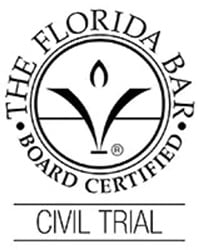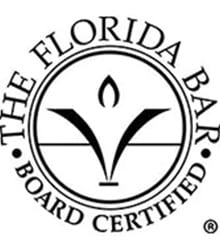Key Takeaways
- Confidence and thorough preparation are essential for a successful deposition, contributing to clear and accurate responses.
- Clear and direct answers, honesty, and consistency in responses enhance the credibility of your testimony.
- Limited objections from your attorney during the deposition are indicative of effective communication and a positive outcome.

Were You Hurt in an Accident? Let Us Help You
Were You Hurt in an Accident? Let Us Help You
Get your FREE & confidential case review todayUnderstanding the Deposition Process
A deposition is a legal proceeding where witnesses provide sworn testimony outside the courtroom. This step is vital for gathering evidence and statements under oath before a trial, serving as a key component of the discovery process. It helps both sides understand the facts and build their cases, including the use of a mock deposition and deposition testimony.
Key players in a deposition include you, your lawyer, the opposing lawyer, and the court reporter, who creates a verbatim record of all statements. Typically held in non-court settings like an attorney’s office, depositions offer a more relaxed environment than a courtroom.
Witnesses are sworn in by the court reporter to ensure truthful testimony. During the deposition, attorneys can object to questions, with these objections documented for potential review. Familiarity with these basics can help you feel more comfortable and prepared for your deposition.
Key Indicators of a Successful Deposition
How can you tell if your good deposition went well? Several positive indicators suggest a successful deposition, such as confidence, clarity, and limited objections. You may want to know if your deposition met these criteria.
A successful deposition often involves being well-prepared and confident, offering clear and direct answers, staying calm under pressure, being honest and consistent, and experiencing limited objections from your attorney. Here’s a closer look at these key indicators.
Confidence and Preparation
Confidence and thorough preparation are crucial for a successful deposition. Reviewing case documents closely with your lawyer can significantly boost your confidence, leading you to feel confident and resulting in clearer and more accurate responses during deposition preparation.
Effective legal representation enhances your confidence and reduces anxiety. Practice with your lawyer and conducting mock depositions can help you feel more at ease and stay calm under pressure.
Clear and Direct Answers
Providing clear, concise answers is vital for a successful deposition. Clear responses prevent unnecessary details that could harm your case. Ensure your answers are complete yet free from additional or irrelevant information. The questions must be answered thoroughly to maintain clarity.
Consistency is key. Your answers should match previous statements and maintain clarity throughout the deposition. Listen carefully, take your time responding, and ask for clarification if needed to answer questions. This approach significantly enhances the credibility of your testimony, and you should expect to provide accurate and consistent answers.
Staying Calm Under Pressure
Staying calm under pressure is crucial for a successful deposition. Strategies like getting enough sleep, mapping your route, and arriving on time can reduce pre-deposition anxiety, especially if you stay calm.
If you feel uncomfortable during the deposition, take a moment to refocus and answer calmly. Your attorney can prepare you for tricky questions from the opposing counsel, helping you anticipate and handle potential challenges effectively on the other side.
Honesty and Consistency
Honesty and consistency form the bedrock of credible testimony. Always tell the truth to ensure accurate responses and maintain credibility. If unsure about an answer, it’s a crucial to answer honestly than to guess. If unsure about an answer, it’s better to present an answer truthfully than to guess; answering honestly is essential.
Consistency in your answers is also vital. Any discrepancies can be used against you, so aim for consistent responses. This honesty and consistency significantly contribute to a successful deposition.
Limited Objections
Limited objections from your attorney indicate that your deposition is a good sign. Few or no objections suggest a smooth questioning process and satisfactory responses to the question.
Assessing the number of objections during the deposition helps determine your performance. Fewer objections generally suggest you stayed on track and provided clear and direct answers, along with any necessary follow-up questions. This is often questioned in evaluations of effectiveness.

Were You Hurt in an Accident? Let Us Help You
Were You Hurt in an Accident? Let Us Help You
Get your FREE & confidential case review todayEvaluating Your Performance Post-Deposition
Evaluating your performance post-deposition helps assess how effectively you communicated. Reflecting on your demeanor and responses provides valuable insights. Reviewing your deposition reveals patterns and highlights areas for clarification.
Constructive input from your lawyer can refine your approach for future depositions, boosting your confidence. Your lawyer’s satisfaction with your responses often indicates a favorable outcome. Identifying areas for improvement is essential for better performance.
Your attorney’s feedback can also indicate whether to prepare for trial or reconsider settlement options. Maintaining composure and answering the attorney’s questions respectfully often signifies a positive deposition outcome.
Next Steps After Your Deposition
After your deposition, reviewing the transcript ensures the accuracy of the recorded testimony. This review can influence future legal strategies and prepare you for the next steps.
Depositions serve multiple purposes during litigation, such as supporting pre-trial motions or preparing for trial. They can also prompt further evidence gathering if new information arises.
Settlement talks may begin after an upcoming deposition, with attorneys using insights from the testimony to negotiate settlement compensation and claims. Understanding these next steps helps you navigate the post-deposition phase with confidence.
Contact an Experienced Personal Injury Attorney
An experienced personal injury attorney is crucial for providing guidance and increasing the chances of a positive outcome in a personal injury lawsuit. Lawyers prepare clients to feel comfortable with their testimony and ensure the deposition transcript strengthens the case at the attorney’s office.
To help you feel more at ease, your attorney might conduct mock depositions. Legal representation during a deposition is essential, as it allows your attorney to guide and assist you throughout the process.
Frequently Asked Questions
How can I know if my deposition went well?
Your deposition likely went well if you felt confident, provided clear answers, stayed calm, and faced minimal objections from your attorney. These factors indicate that you effectively communicated and maintained composure throughout the process.
Why is attorney feedback important after a deposition?
Attorney feedback after a deposition is crucial for assessing your performance and pinpointing improvement areas, which in turn informs your future legal strategies. This guidance can significantly enhance your effectiveness in future depositions and legal practices.
What should I do after my deposition?
After your deposition, it’s crucial to review the transcript and discuss the next steps with your attorney to prepare for potential settlement talks or further evidence gathering. Staying informed and proactive will help you navigate the next phases effectively.
How can I stay calm during a deposition?
To stay calm during a deposition, ensure you get adequate sleep, arrive punctually, and practice with your attorney beforehand. This preparation will help reduce anxiety and keep you focused.
Why should I hire an experienced personal injury attorney?
Hiring an experienced personal injury attorney is crucial as they offer expert guidance, enhance your testimony, and significantly strengthen your case. Their knowledge and skills can substantially influence the outcome of your claim.

Were You Hurt in an Accident? Let Us Help You
Were You Hurt in an Accident? Let Us Help You
Get your FREE & confidential case review today













